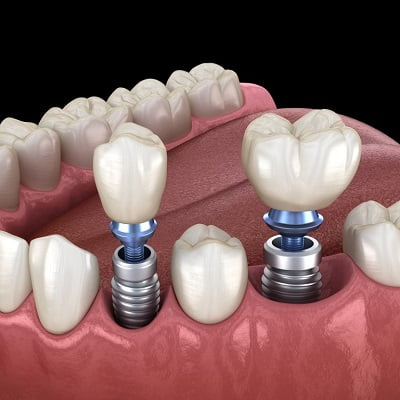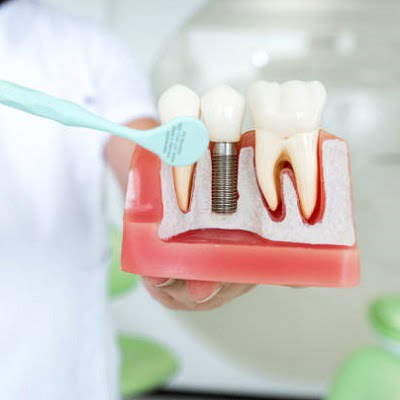
How To For Prepare a Dental Implant Surgery: A guide
The Implanting technique of dentures is the best solution out there for patients who have lost teeth and are having dentures and bridge that is causing them discomfort and requires an extra amount of care.
Replacing artificially made ones with lost teeth that are usually attached to the gum assures they will work out for the patient and do the task of natural teeth. So when the surgery takes place for dental implantation, they will last to a long extent. After that, all you must do is take care of yourself like your real ones in a routine.
Therefore, the implant placement procedure of dentures is not an excellent choice for every person. It depends on the state and strength of the jaw, and the process itself may require a set of operations/ surgeries until you’re completely set. But after that, your teeth replacement will blend with other teeth and look like your own natural teeth.
It also covers the spaces in which the previous ones were present. The dentist will examine who needs the dental implants & what they should anticipate if they are done with the surgery.
Who Are Eligible For Dental Implantation Surgery?
- Those people who have lost their original teeth (i.e., 1 to 2 or so on)
- Those people who have maintained their oral care and their health
- Having imperfect or decayed teeth
- Having enough jaw space onto which implants can be done.
- They are in excellent health and don’t hold any disorders that could intervene in repairing the jaw.
Applicants for implant placement dental surgery will also need to be persistent. That’s an extreme measure that would take some period to complete, and you must incorporate that period into the operations. This procedure is complex, and it can’t be completed at a rapid pace or within a few days. You will be advised not to smoke, as nicotine-containing products can cause dental implant failure.
Dental Implant Surgery Preparation:
Before proceeding with this dental surgery, where you must do implantation, you must first visit with a group of experts, which would include your dentist, an orthodontist, and an ENT consultant. This is done to verify that this treatment is effective for you. This also helps to give you an idea of the success of your implant surgery. You will certainly have to undertake the following procedures as an evaluation section of dental implant surgery.
A review of your medical history:
If your dentist is a professional, he will always ask for your medical history. He would understand your health pattern, including any drug intake, previous operations, deficiency, and diseases that may influence your procedure.
A thorough inspection of patient teeth:
This will be done by examining X-rays and 3 Dimensional pictures.
Following the completion of either of these procedures, an appropriate treatment plan regarding implant placement surgeries of dentures may be developed for your unique situation. It will contain the number of dentures that need to be changed, spaces if none exist, and the quality of your remaining teeth and general jaw condition.
Dental Implant Operation:
Because dental implant surgery requires many phases that need to be addressed over a certain amount of time, it takes up to 3 – 5 months — to ensure adequate recovery of a spot or areas in which the implantation will take place, things that have significant possibilities are mentioned down:
- Including anchoring, which joins the implant to the fake teeth.
- Transplanting in the jaw section if there is inadequate bone to endure or hold the transplant, then bone grafting could be done from the hip, chin, lower jaw areas of the body or synthetic.
- A period of recovery that allows for bone development.
- Installing the implants or the synthetic base for teeth will hold the surgical implant in its place.
- Removing old, broken/imperfect teeth and preparing the location for insertion of a new tooth.
- Implantation of a synthetic teeth
It is time to rest and heal whenever the main restorative dentistry operation is over. You might experience swollen and bruised skin or gumlines, and you will face some acute blood spilling and discomfort at the implantation surface. You are most likely to be prescribed antibiotics and some pain killers.
Typically, the stitching material used in this type of surgery gets dissolved in some time; however, if it doesn’t get dissolved, you would have to get them removed from your surgeon. You would have eaten less and liquidy soft meals during this period that wouldn’t affect the implant. Many dental surgeries of implanting have had a higher success rate, but if any mishap takes place removal option is always handy.
So there you have it, How to prepare for a dental implant surgery: A guide to help you get ready for the procedure! The next thing is to book your appointment and get started!



